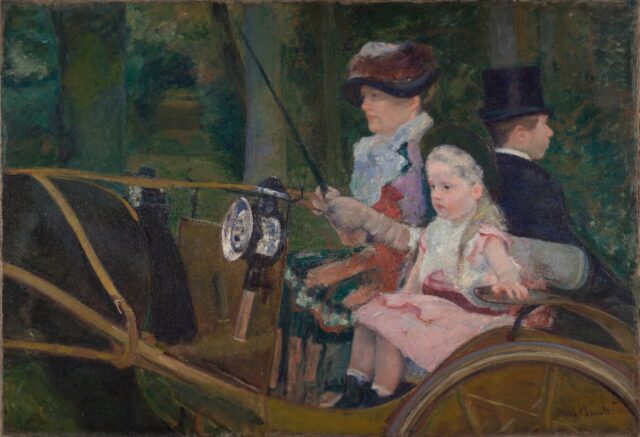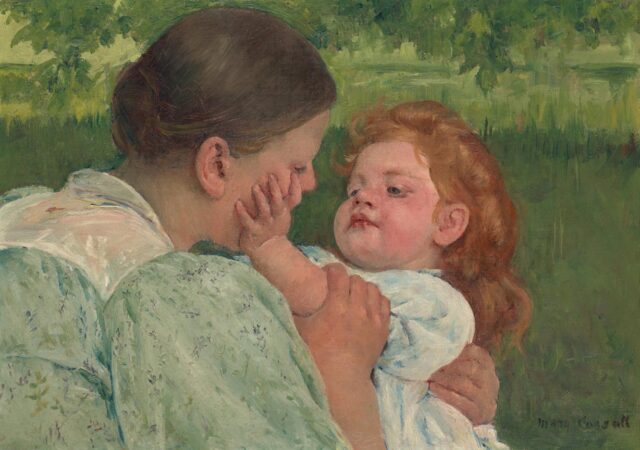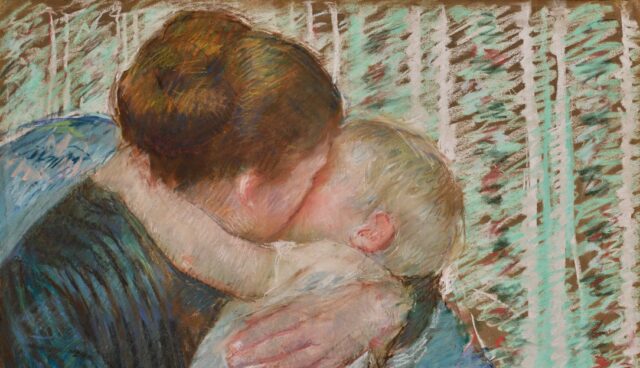As one of the leaders of the French Impressionist movement and the most celebrated woman artist of her era, Mary Cassatt was an artist who used women, their activities, and the space they occupy in society as her main subject matter. Mary Cassatt at Work, on exhibit at the Legion of Honor starting Oct. 5, showcases Cassatt’s multifaceted exploration of life during the 19th century.
French Impressionism
Cassatt was initially trained at the Pennsylvania Academy of Fine Art, then pursued further studies in Europe. She developed exceptional draftsmanship uncommon for women of her era, and her early submissions to the Paris Salon were accepted. As she developed her personal style, Cassatt’s reception waned within the art establishment. Fortunately, Edgar Degas invited her to exhibit with the Impressionists in 1879, marking a turning point in Cassatt’s career. She continued contributing work to the Impressionists’ group exhibitions and became an ambassador for the movement in the United States.
Women’s work
Cassatt was best known for her pictures of women and children. Images of knitting and needlepoint, bathing children and nursing infants show women at work, just as the marks of Cassatt’s paintbrush, etching needle, pastel sticks and even her fingertips exist as a testament to her own life’s work.
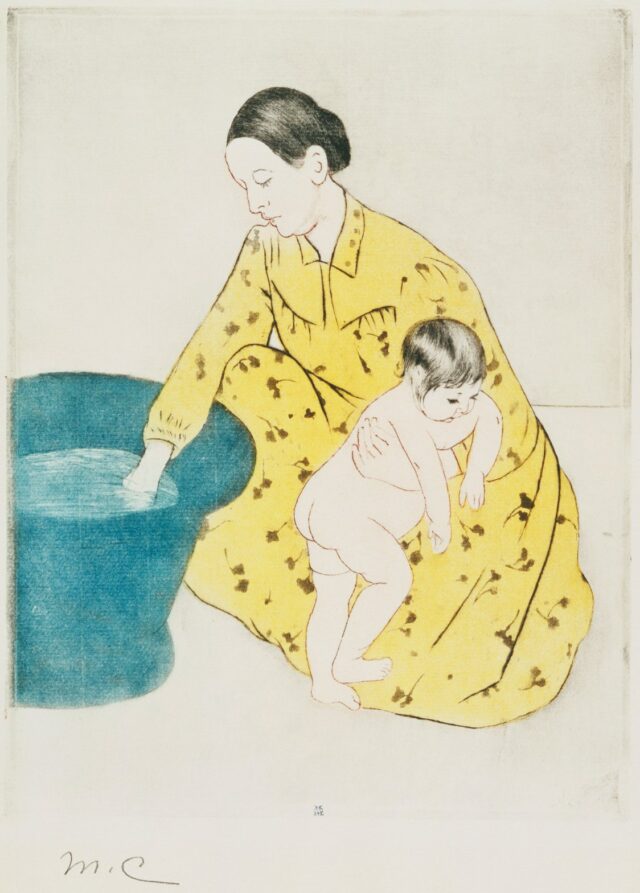
The exhibit begins with groundbreaking Impressionist works portraying women in the audience at the Paris Opera. As it moves through Cassatt’s career, the exhibition includes depictions of bourgeois women engaged in various tasks, acute portrayals of children, and revolutionary color etchings inspired by Japanese woodblock prints. In The Bath from 1891, a drypoint soft ground etching and aquatint, the artist uses a block color of yellow to depict a woman’s dress as she holds a naked child in front of a small blue tub. The fine, stylized linework and flat use of color are reminiscent of the Japanese tradition that influenced Cassatt. The artist and her process are examined, emphasizing experimentation and revision in both printmaking and painting.
Later years
Mary Cassatt at Work concludes with the artist’s persistent return to the theme of women and children in the “modern Madonnas” of her final decade. Though this work has been stereotyped as sentimental in the past, the variance of Cassatt’s vast talents in drafting, pastel, and oil is reinforced by her ability to find something new each time she revisited this motif.
“In a sense, the mother-and-child theme was to Cassatt’s final decades what water lilies were to Monet’s or apples to Cezanne’s. Because this motif is and was so freighted with gendered meaning, it’s been too easy to write these pictures off as sweet or sentimental, when in fact they’re formally rigorous, engaged in an ever-deepening conversation with tradition and an ever more experimental handling of paint,” said organizing curator Emily A. Beeny.
Sarah in a Large Flowered Hat, Holding Her Dog, circa 1901 is a lively pastel from the artist’s later period. The vitality and movement of the bold cross hatchings of blue and pink contrast with the relaxed, happy expression of the smiling girl and gentle dog in her lap.
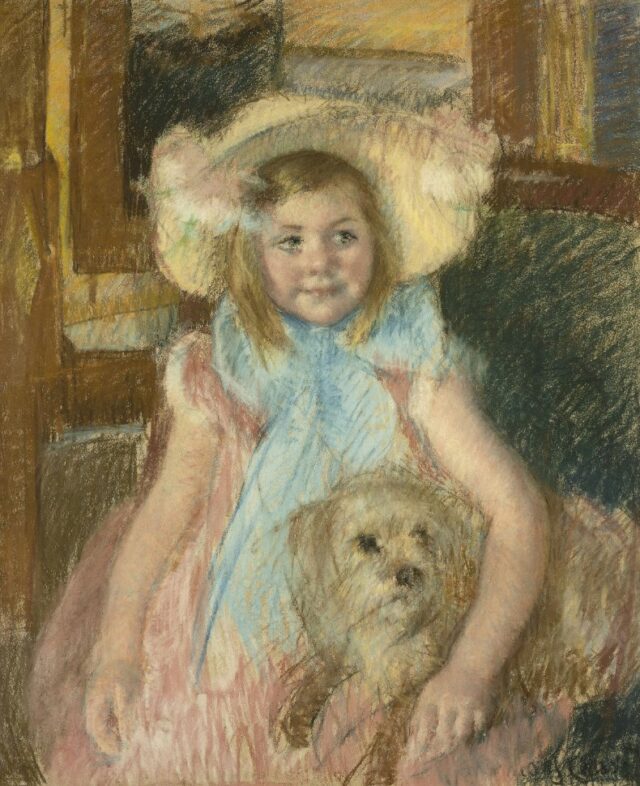
Beeny continues, “Given the social realities of Cassatt’s time, it’s perhaps useful to reflect on the fact that these works are all, in some sense, brought to us by Cassatt’s own childless state. The ambition and scope of her career were, alas, quite incompatible in the late 19th century with marriage and childbearing, even for a woman of her elevated social class.”
Cassatt remained a career-minded woman and earned patronage from American collectors. She eventually began losing her vision and in 1915 exhibited her final pictures at an exhibition in New York supporting women’s suffrage, a cause to which she devoted considerable time and energy in her later years.
Mary Cassatt at Work includes Cassatt’s magisterial oil portrait of her mother and recently acquired pastels from the Fine Art Museum’s collection as well as 93 objects on loan from various institutions. This expansive retrospective’s sole West Coast venue will be at the Legion of Honor, providing the public a rare opportunity to witness the work of a painter who transformed the course of modern art.
Sharon Anderson is an artist and writer in Southern California. She can be reached at mindtheimage.com
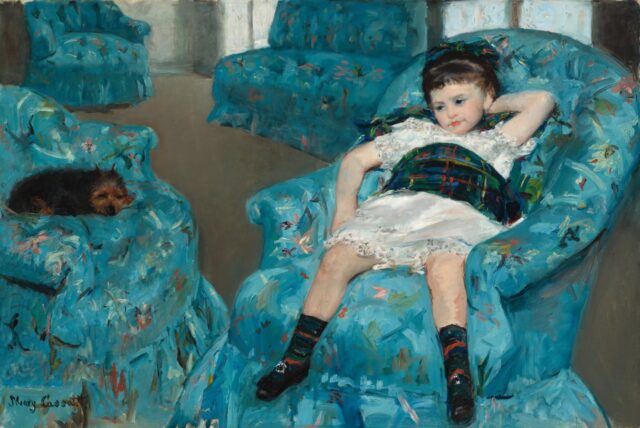
Image courtesy of the Fine Arts Museums of San Francisco.
